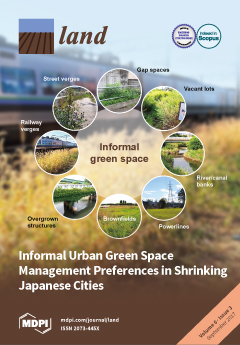Resource information
This paper applies a resilience- and assemblage-based methodology to study the socio-ecological dynamics of human responses in the land degradation-affected Messara Valley (Crete, Greece) socio-ecological system, from 1950 to 2010. It posits that thesedynamics aredriven by changes in their effectiveness, called ‘socio-ecological fit’, to serve place- and time-specific goals. The socio-ecological fit expresses the degree to which the match among all the biophysical and human components of a Response Assemblage emerging in a socio-ecological system, maintains the socio-ecological resilience of this Assemblage. The socio-ecological resilience results is gauged by synthesizing three system-level properties (Resilience, Adaptability, Transformability) shaped by lower level properties that are assessed from available data. The reported application revealed that human responses (traditional land management, agricultural modernization and subsidized agriculture) and their effectiveness were driven by prioritizing economic and technological considerations that shaped the properties, socio-ecological resilience and fit of three main Response Assemblages formed over the study period, rather than combating land degradation. Agricultural modernization did not uniformly and necessarily lead to land degradation; the situated relationships among the components of the Response Assemblages determined its effects. The fit of future options can be assessed also to support rational land use planning. Refinements in the methodology include the development of techniques to: (a) assess and synthesize the properties of different components in order to improve assessments of socio-ecological resilience and fit and (b) study relationships among the properties of Response Assemblages emerging at different levels.


